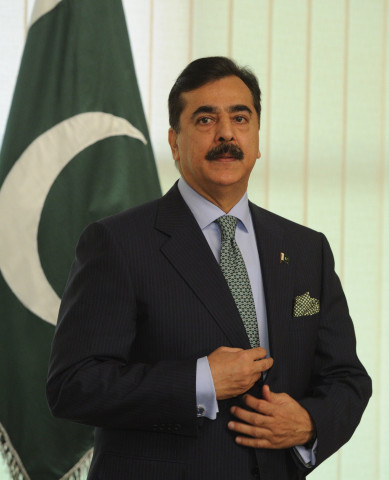In contempt!
The coming weeks are likely to become increasingly turbulent, especially if the prime minister does not step down.

The carefully-crafted verdict is perhaps indicative of the Court’s desire to punish the prime minister without actually upsetting the democracy applecart. One hopes that this is the case because strengthening the hands of anti-democratic forces is presumably the last thing that the Justice Iftikhar Mohammad Chaudhry-led Court would want to see happen. This is perhaps why the Supreme Court sentenced him (to “imprisonment” — re: the actual text of the short order) for only a few minutes until the court adjourned. But this does not mean the prime minister should consider himself safe in his position as prime minister. Since he has now been convicted, he could eventually be removed from office or, perhaps, take the moral high ground and resign. Of course, this outcome appears unlikely given the press conference of the prime minister’s lawyers, Aitzaz Ahsan. Conducted later in the day, Mr Ahsan cited what he thought were several faults with the verdict and said that he had been asked by the prime minister, with the full backing of the federal cabinet, to file an appeal.
As hard done by as the PPP may feel at this point, the contempt verdict could also be a blessing in disguise for its electoral chances. The party has always, with some element of truth, painted itself as a party that is scorned by the military and plotted against by the establishment. It can now include the Supreme Court, which in 1979 sentenced Zulfikar Ali Bhutto to death, as part of the same conspiracy. This could well be a strategy that it uses for the next elections. Meanwhile, with the prime minister taking the fall for not writing the letter to the Swiss authorities, the PPP can continue to rule if it so wishes by bringing in another loyalist as prime minister.
It is hard to either criticise or praise the Supreme Court for its verdict until the full written judgment is released. But it can be said that the Supreme Court’s new-found independence and power is a mixed blessing. We should all be thankful that the Court is no longer a docile body that exists simply to rubber stamp whatever the government wants. This great power, however, comes with great responsibilities. In order for the Supreme Court to be a responsible political power, it has to demonstrate that it is committed to treating all political actors and all institutions equally. The truth of the matter is that right now there are many people — and not all are members of the PPP — who believe that the Hounourable Court is perhaps unfairly targeting the party. However, in the Mehran Bank, missing persons and Balochistan cases, the Court now has an opportunity to show that it will treat all violators of the law and the Constitution on an equal footing. The PPP, meanwhile, needs to put this verdict behind it and resume concentrating on governance. Of course, that is a wish because the coming weeks are likely to become increasingly turbulent, especially if the prime minister does not step down and make way for another consensus candidate.
Published in The Express Tribune, April 27th, 2012.















COMMENTS
Comments are moderated and generally will be posted if they are on-topic and not abusive.
For more information, please see our Comments FAQ